This study compares injuries from e-scooters, e-bikes, and bicycles in the United States.
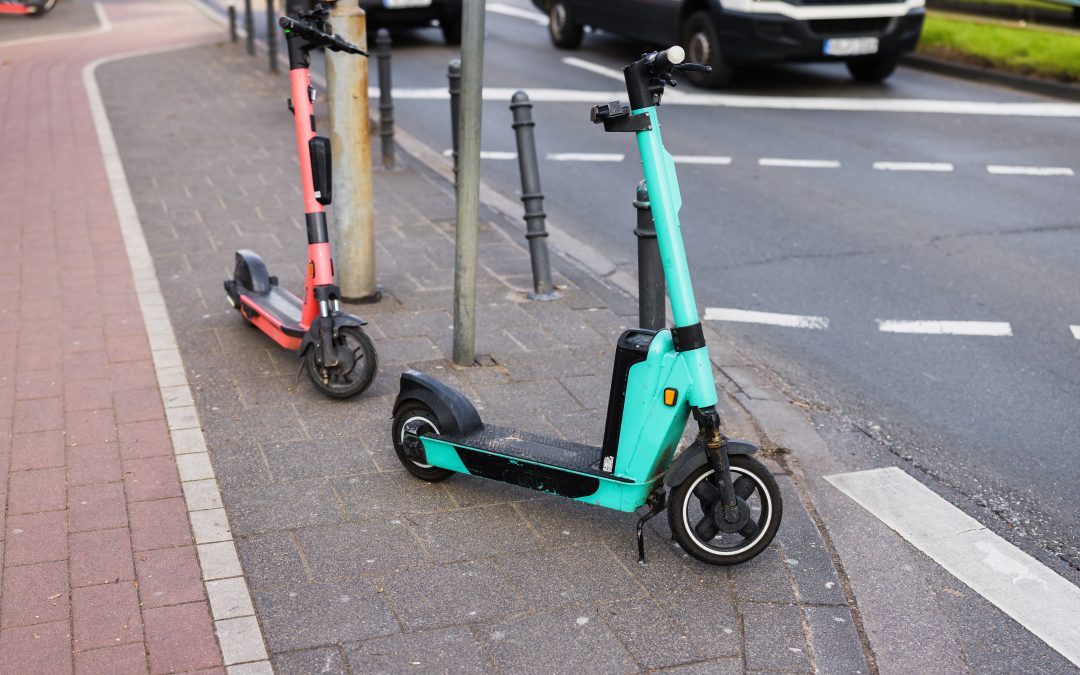

This study compares injuries from e-scooters, e-bikes, and bicycles in the United States.
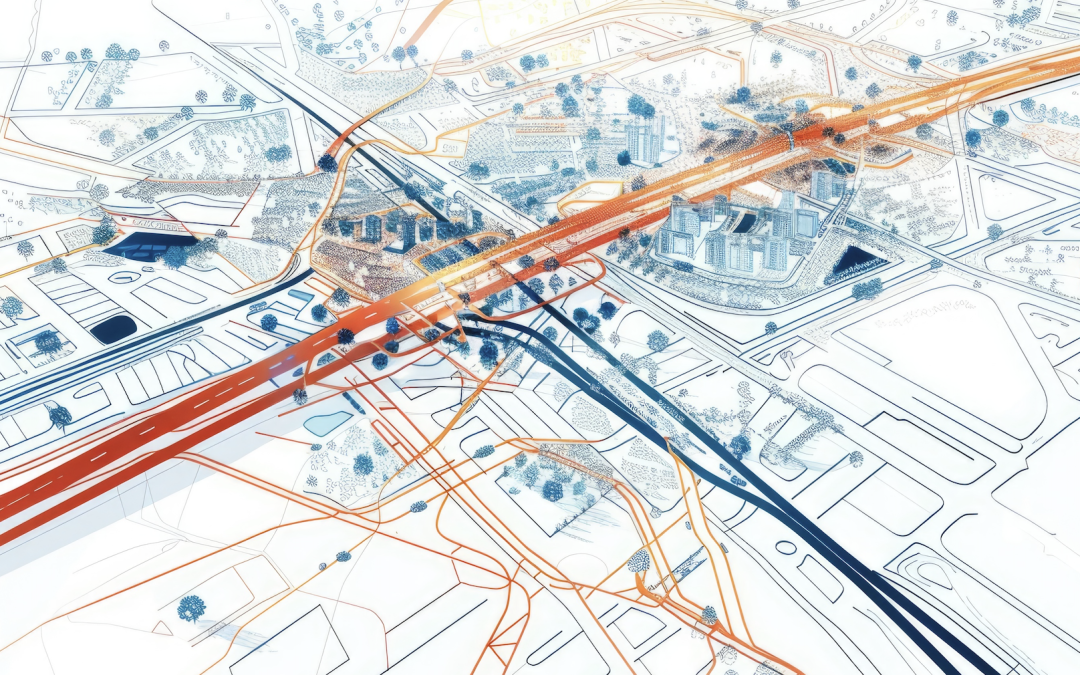
Younes and Noland document the state of crash data availability in the US and identify best practices for managing and making crash data openly accessible.

We examine who can work from home during the pandemic and whether this behavior will persist post-pandemic by conducting two representative online surveys in New Jersey.
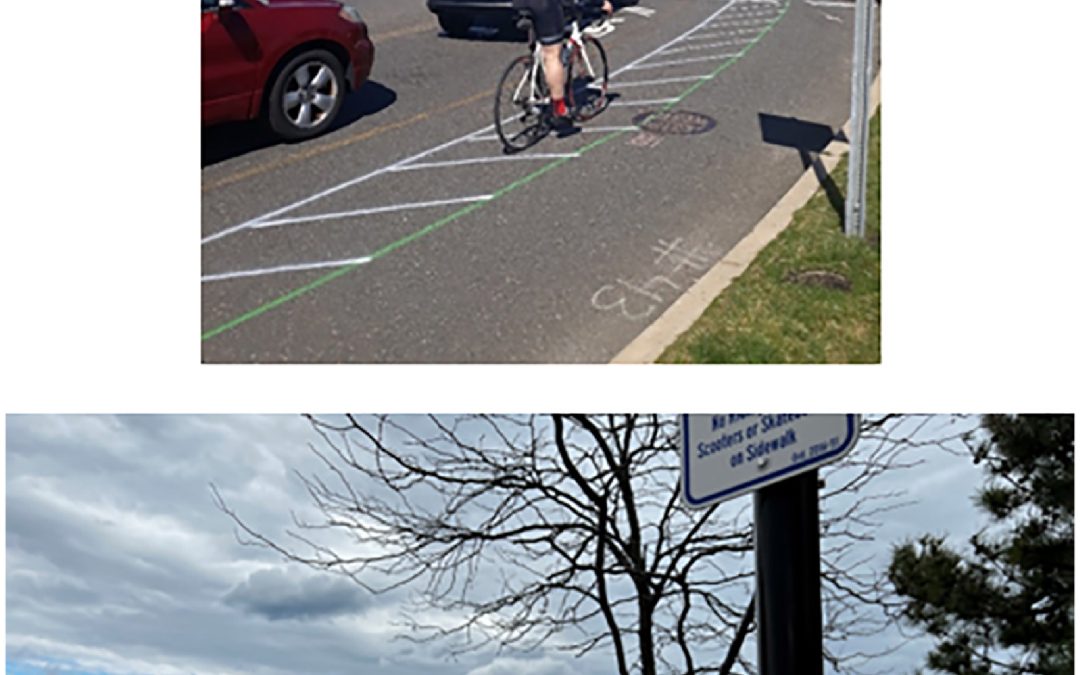
A team of Rutgers researchers led by VTC’s Hannah Younes analyzed the effect of a bicycle lane on traffic speeds using computer vision techniques.
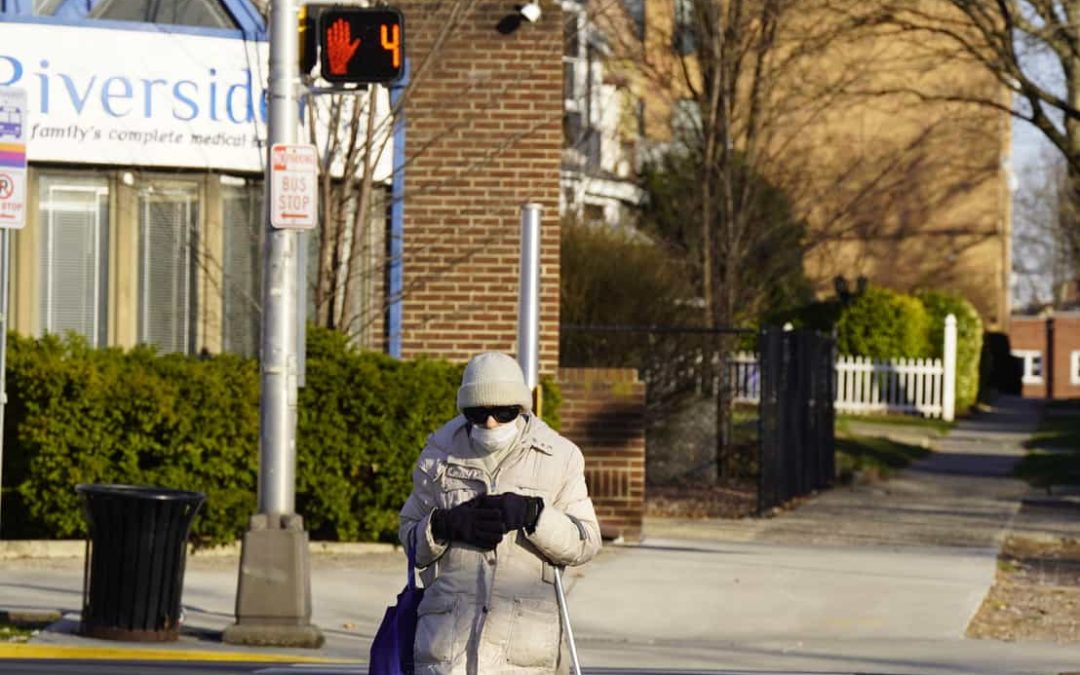
The researchers investigated the relationship between people who worked from home during the pandemic and how often they walked before, during, and after COVID.

In this study, researchers Hannah Younes, Robert B. Noland, and Clinton J. Andrews used traffic camera footage to observe the behavior of over 700 shared e-scooters and privately owned bicycles in Asbury Park, New Jersey. The authors discuss policy implications with regard to safety and gender differences between the two modes of transit.
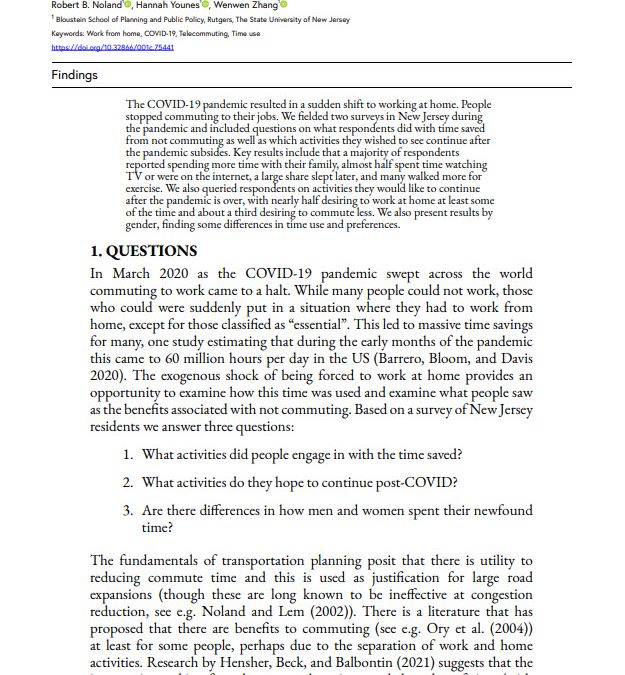
The researchers fielded two surveys in New Jersey during the pandemic and included questions on what respondents did with time saved from not commuting as well as which activities they wished to see continue after the pandemic subsided.
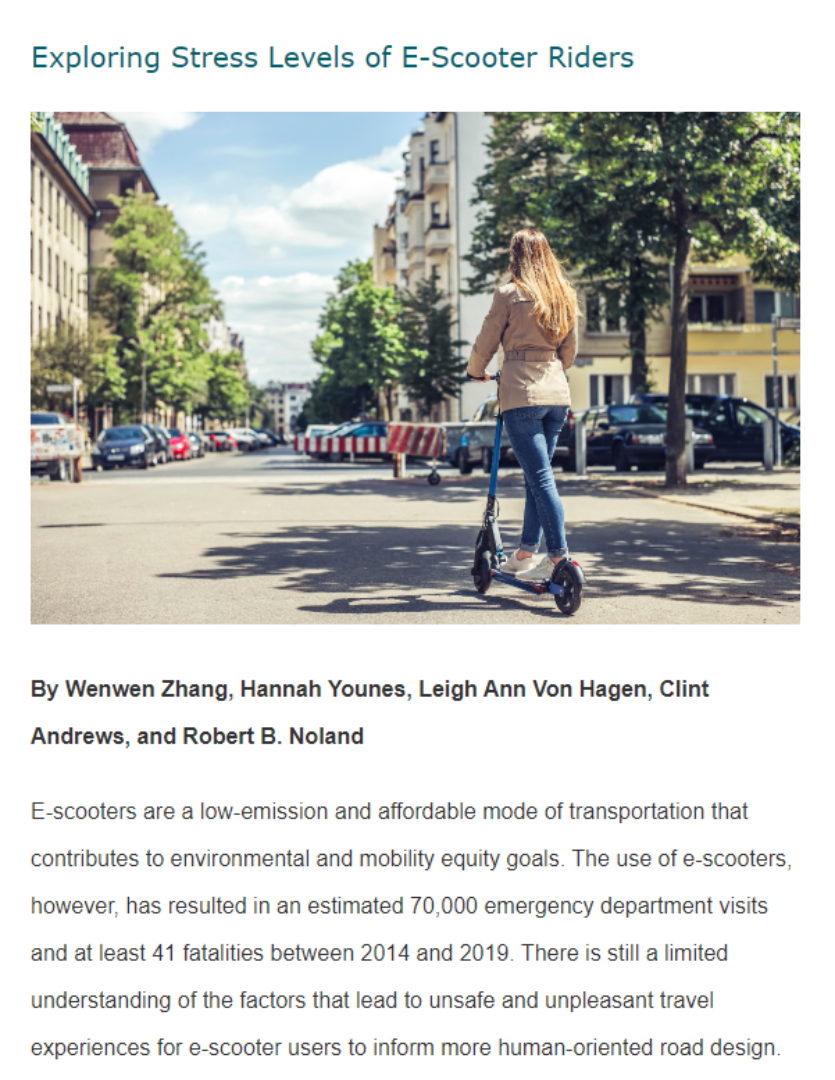
The results of this pilot data collection effort provide insights on the potential use of the latest sensor technology and computer vision algorithms to understand travel behavior for new and emerging transportation modes.
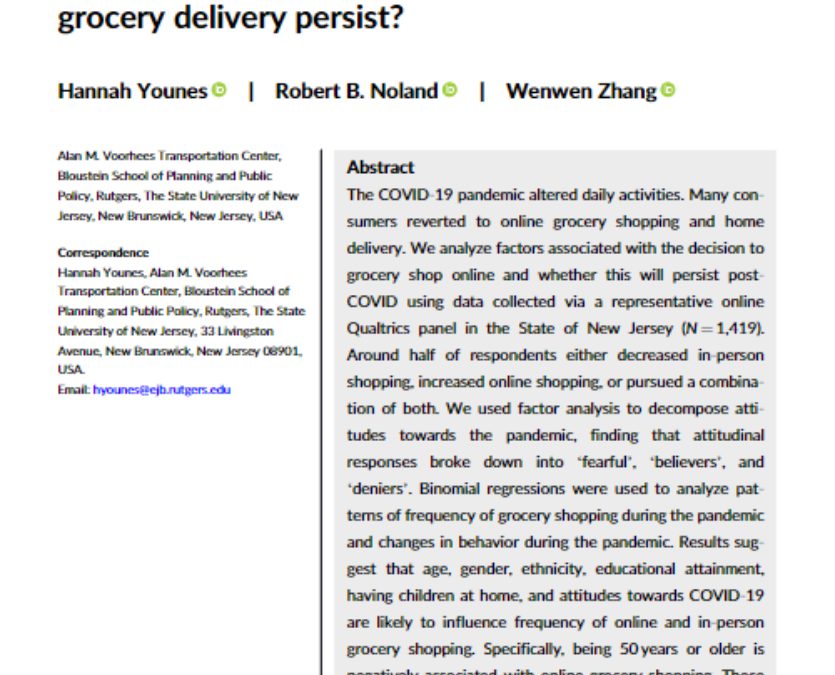
We analyze factors associated with the decision to grocery shop online and whether this will persist post-COVID using data collected via a representative online panel.
Induced travel elasticities associated with new road capacity are typically estimated for roads of higher functional classifications, such as interstate freeways and principal arterials. These are estimated as “own” elasticities, that is an increase in lane kilometers...
There is a growing perception that e-scooters are more dangerous than bicycles and e-bikes, with towns implementing measures to ban their usage. Yet, there is not much evidence from large scale surveys to substantiate this claim. Nearly 14,000 micromobility injuries...
We compare charging station accessibility for different income groups in the San Francisco Bay Area. Using a microsimulation model, we estimate charging station accessibility under varying battery range scenarios, assuming different income groups have vehicles with...
The New Jersey Micromobility Guide serves as a resource for micromobility users across the state, collecting and summarizing the laws and safety best practices that can make riders safer. Micromobility, which includes e-bikes, e-scooters, and other low-speed devices,...